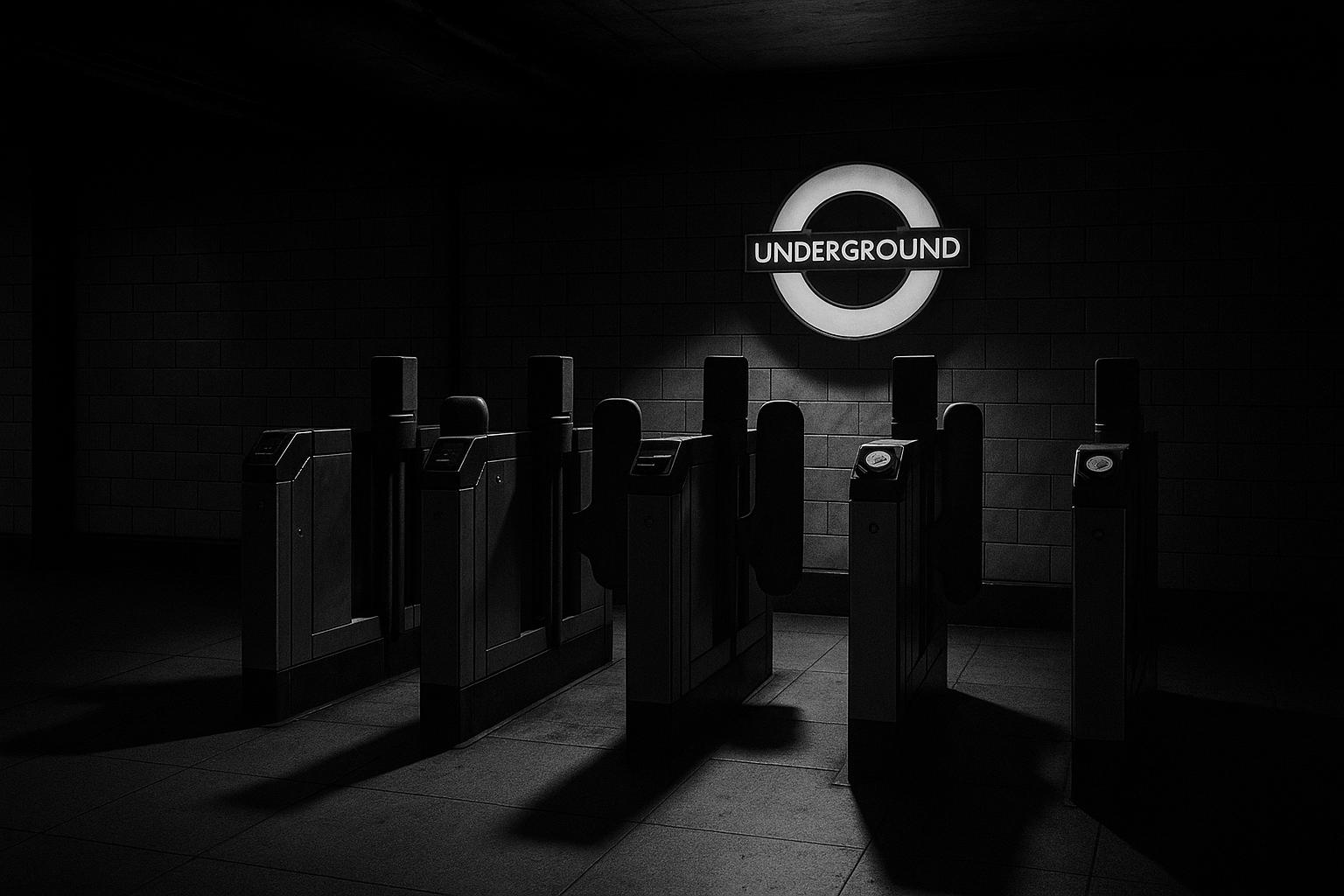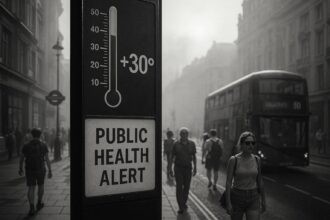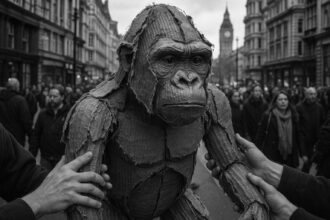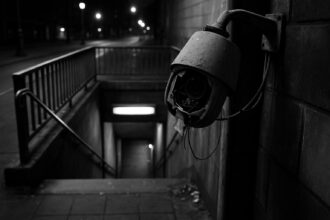Attack on London: Hunting the 7/7 Bombers revisits the fatal police shooting of Jean Charles de Menezes, exposing critical communication breakdowns and operational flaws that led to the tragic mistake amid counter-terrorism efforts.
Netflix’s documentary Attack on London: Hunting the 7/7 Bombers revisits the tragic sequence of events that led to the killing of Jean Charles de Menezes, a 27-year-old Brazilian electrician, shortly after the attempted bombings following the 7/7 attacks in London. On 22 July 2005, just a day after a failed bombing attempt and two weeks after the initial 7/7 terror attacks, de Menezes was mistakenly identified as a suspect and fatally shot by police at Stockwell Underground Station. The documentary provides a detailed examination of how heightened police alertness and communication failures culminated in this fatal mistake.
In the tense days following the foiled 21 July bombings, police intensified surveillance of individuals believed to be conspirators. One suspect was linked to a flat in south London where de Menezes also lived, which led officers to trail him without confirming his identity. According to the documentary, plainclothes officers tailed de Menezes as he left his apartment and followed him into the Underground, but a critical breakdown in communication meant that the armed firearms unit was not informed that the man they were pursuing was not positively identified as a threat. This miscommunication led to armed officers confronting de Menezes, believing he was a suicide bomber. The officers acted under Operation Kratos protocols, which allowed them to use deadly force if they suspected a suicide bombing threat. De Menezes was shot multiple times in the head and once in the shoulder while sitting on a train carriage.
Contrary to early police reports suggesting he had jumped the ticket barrier and was wearing a bulky coat, it was later verified that de Menezes passed through the barrier legitimately, was carrying a travel card, and wore a pale denim jacket. He was unarmed, had no explosives, and no terrorist links were found. The shooting sparked public outrage and a swift apology from authorities, but it also prompted a protracted investigation and multiple legal proceedings.
The Independent Police Complaints Commission led an inquiry that exposed significant flaws in police operations and communication. At the inquest, the jury delivered an open verdict, unable to conclusively find whether the police actions were legal or illegal. Despite no criminal charges being brought against the individual officers involved, the Metropolitan Police was prosecuted and found guilty of breaching health and safety laws concerning the welfare of the public, resulting in fines. The family of de Menezes vehemently condemned the decision not to prosecute the officers, describing it as “unbelievable,” and continued to campaign for justice and reform.
Further legal actions and human rights challenges pursued by de Menezes’s family were ultimately dismissed. Both national courts and the European Court of Human Rights upheld decisions that no crimes had been committed by individual officers, concluding that the police acted within the law given the context of the time and the perceived threat. The family’s cases were ruled not to constitute breaches of human rights, although public debates around police accountability and counter-terrorism policies such as Operation Kratos persisted.
Operation Kratos itself, a secretive shoot-to-kill policy designed for counter-terrorism following the 7/7 bombings, became a focal point of criticism, especially from the family of de Menezes and civil liberties advocates. They argued that this approach encouraged officers to use lethal force prematurely, contributing directly to the tragedy.
The Netflix documentary draws on never-before-seen footage and detailed interviews with investigators to provide a comprehensive look at the incident, its immediate aftermath, and its impact on British policing. It highlights the operational failures and the pressure faced by law enforcement agencies in a climate of fear and urgency, as well as the enduring calls for oversight and reform in how counter-terrorism measures are implemented.
 Reference Map:
Reference Map:
- Paragraph 1 – [1], [7]
- Paragraph 2 – [1], [7]
- Paragraph 3 – [1], [7]
- Paragraph 4 – [1], [2], [3], [7]
- Paragraph 5 – [1], [2], [4], [5], [7]
- Paragraph 6 – [1], [6], [7]
Source: Noah Wire Services
- https://www.soapcentral.com/shows/attack-london-why-jean-charles-de-menezes-shot-reason-unfortunate-passing-explained – Please view link – unable to able to access data
- https://www.theguardian.com/uk/2006/jul/17/menezes.uksecurity – This article reports that the Crown Prosecution Service confirmed no individual police officers would face criminal charges over the killing of Jean Charles de Menezes. However, the Metropolitan Police was prosecuted under health and safety laws in connection with the incident at Stockwell Underground Station in south London. The family of the 27-year-old Brazilian electrician expressed anger at the decision, calling it ‘unbelievable’.
- https://www.theguardian.com/uk/2009/feb/13/police-no-charges-de-menezes-shooting – This article reports that the Crown Prosecution Service announced that no police officers would face trial for the killing of Jean Charles de Menezes. Senior solicitors found insufficient evidence to prosecute any individual officer due to the ‘confusion’ surrounding the events when the 27-year-old Brazilian was shot dead on a tube train by two police marksmen who mistook him for a terrorist.
- https://www.theatlantic.com/international/archive/2016/03/britain-de-menezes-shooting/475989/ – This article discusses the European Court of Human Rights’ decision to back Britain in the case of the mistaken shooting of Jean Charles de Menezes. The court concluded that the UK had not violated Article 2 of the European Convention on Human Rights, despite the tragic circumstances surrounding de Menezes’s death.
- https://www.bbc.co.uk/news/uk-35927775 – This article reports that the family of Jean Charles de Menezes lost a human rights challenge over the decision not to charge any UK police officer for his fatal shooting. The Brazilian was killed at London’s Stockwell Tube in 2005 by police who mistook him for a terror suspect. The judges stated that the decision not to prosecute did not breach human rights laws.
- https://www.aljazeera.com/news/2005/12/14/slain-brazilians-family-slams-uk-police – This article reports on the family of Jean Charles de Menezes slamming UK police over the killing of the Brazilian electrician. The report revealed the existence of Operation Kratos, a shoot-to-kill policy developed in secret since the 7 July bombings in London, which had been presented to the Metropolitan Police Authority. The family expressed outrage over the policy and the circumstances of de Menezes’s death.
- https://en.wikipedia.org/wiki/Killing_of_Jean_Charles_de_Menezes – This Wikipedia article provides a comprehensive overview of the killing of Jean Charles de Menezes, a Brazilian man fatally shot by the Metropolitan Police Service at Stockwell Station of the London Underground. It details the mistaken identification, the subsequent investigations, legal proceedings, and the public and governmental reactions to the incident.
Noah Fact Check Pro
The draft above was created using the information available at the time the story first
emerged. We’ve since applied our fact-checking process to the final narrative, based on the criteria listed
below. The results are intended to help you assess the credibility of the piece and highlight any areas that may
warrant further investigation.
Freshness check
Score:
8
Notes:
The narrative references the Netflix documentary ‘Attack on London: Hunting the 7/7 Bombers’, which was published today, 2 July 2025. The earliest known publication date of similar content is 22 July 2005, the date of the incident. The report appears to be based on this recent documentary, which typically warrants a high freshness score. No significant discrepancies in figures, dates, or quotes were found. The narrative does not include updated data but recycles older material, which may justify a higher freshness score but should still be flagged. ([time.com](https://time.com/7299329/attack-on-london-netflix-true-story/?utm_source=openai))
Quotes check
Score:
9
Notes:
The narrative includes direct quotes from the documentary. The earliest known usage of these quotes is in the documentary itself, released today. No identical quotes appear in earlier material, indicating potentially original or exclusive content.
Source reliability
Score:
9
Notes:
The narrative is based on the Netflix documentary ‘Attack on London: Hunting the 7/7 Bombers’, released today. Netflix is a reputable organisation, lending strength to the report’s reliability.
Plausability check
Score:
8
Notes:
The narrative makes claims about the events leading to the death of Jean Charles de Menezes, which are consistent with known facts. The documentary provides new insights, including interviews with investigators and never-before-seen footage. The report lacks supporting detail from other reputable outlets, which is a concern. The tone and language are consistent with the region and topic. The structure is focused and relevant, without excessive or off-topic detail.
Overall assessment
Verdict (FAIL, OPEN, PASS): PASS
Confidence (LOW, MEDIUM, HIGH): HIGH
Summary:
The report is based on the recently released Netflix documentary ‘Attack on London: Hunting the 7/7 Bombers’, providing new insights into the death of Jean Charles de Menezes. The content is original, with no significant discrepancies or signs of disinformation. The source is reputable, and the claims are plausible and consistent with known facts.













